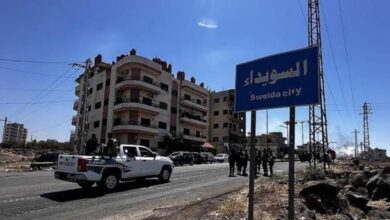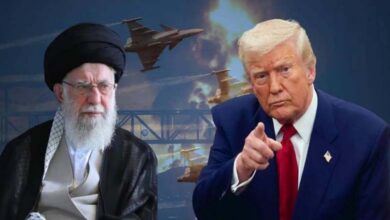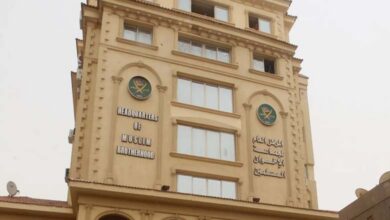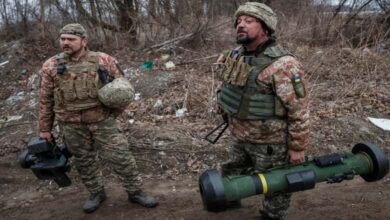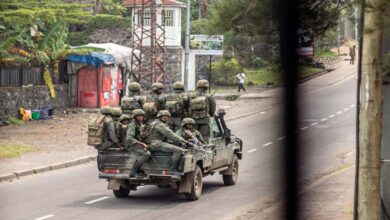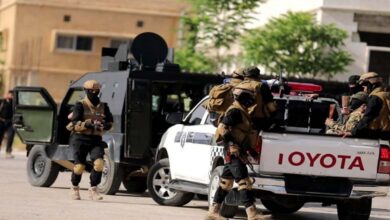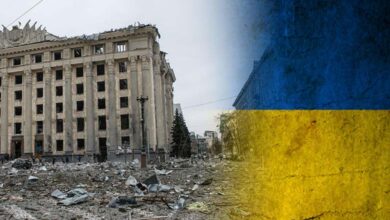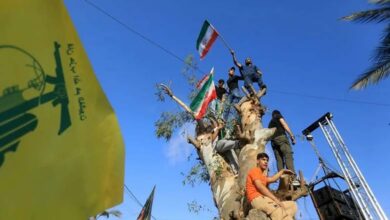Lebanon Dismantles Hezbollah Network with Israeli Support
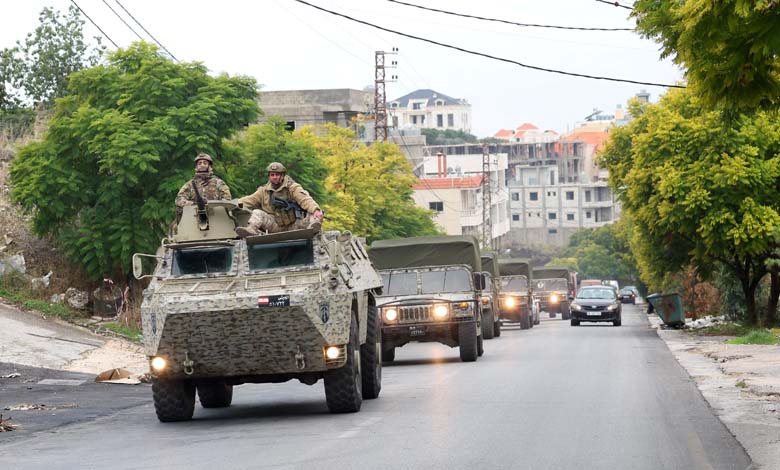
In a significant development, the Lebanese army, with indirect support from Israeli intelligence, has succeeded in dismantling a Hezbollah network in southern Lebanon.
This progress—described by American and Israeli officials as a “positive surprise”—is considered a cornerstone in preserving the fragile ceasefire that ended last year’s wave of violence with Israel, according to The Wall Street Journal.
-
Religious Chant Leader Accused of Spying for Israel and Bringing Down Hezbollah Officials
-
Hezbollah’s Violations Rekindle Tensions at the Syrian-Lebanese Border
Lebanon’s new government, led by Prime Minister Nawaf Salam, is moving decisively to consolidate this achievement. In a statement to the newspaper, Salam affirmed: “The state must monopolize all weapons across Lebanese territory.”
According to Salam, the Lebanese government has already accomplished around 80% of its goals in disarming militias in the far south of the country.
High-level Arab sources reported that crucial Israeli intelligence was transmitted through American channels, enabling the Lebanese army to locate and destroy remaining weapons caches and Hezbollah military positions in the south.
-
Disarming Hezbollah is closer than Ever
-
Dismantling of Most of Hezbollah’s Military Sites in Lebanon: Flexibility or Manoeuvre?
These operations allowed the army to assert control south of the Litani River for the first time in decades, including command over entry and exit points previously controlled solely by Hezbollah.
An Israeli military official expressed satisfaction with the development, noting that “the Lebanese army’s effectiveness exceeded expectations.”
The disarmament plan goes beyond the south, as the government promotes a multi-phase strategy that includes disarming Palestinian factions within refugee camps.
-
The future of Hezbollah’s weapons is open for discussion: Under conditions
-
Hassan Bdeir : Hezbollah Leader Targeted by Israeli Airstrike in Beirut
There are also moves to strip Hezbollah of security control over key sites, including Beirut Airport.
However, the biggest challenge lies in extending this operation north of the Litani River, where Hezbollah’s cooperation remains tied to internal political considerations.
Analysts believe Hezbollah is leveraging its current cooperation to gain political capital, especially as Lebanon urgently needs reconstruction funding without provoking the party.
Researcher Randa Slim of Johns Hopkins University warns: “Unless Hezbollah is willing to voluntarily disarm, I don’t see a scenario where the Lebanese government would choose to disarm it by force.”
-
Hamas Hezbollah and Houthis: Netanyahu Unveils His Vision to End the Gaza War
-
Mossad Reveals How the Pager Explosions Shifted the Course of the War against Hezbollah
She added: “Instead, Hezbollah’s refusal to disarm should be made politically unacceptable and costly, by linking the reconstruction of Shiite-majority areas to that step.”
But the mission carries significant risks. Hezbollah, which has built its strength over four decades with Iranian support, still enjoys a wide popular base despite recent setbacks.
The party faces existential dilemmas. Its MPs, like Ibrahim al-Moussawi, argue that “the remaining weapons are a source of strength for Lebanon,” citing ongoing Israeli threats.
-
The Secrets of Funding: Israel Warns of Smuggling Operations for Hezbollah
-
The Shadow Game: How Israel Penetrated the Heart of Hezbollah before Hassan Nasrallah’s Assassination
However, rearming now seems virtually impossible after the closure of smuggling routes from Iran via Syria—especially following the fall of the Assad regime and the rise of an anti-Tehran government. Lebanese authorities have also tightened restrictions on Hezbollah’s funding through the airport.
The prospect of disarmament north of the Litani raises deep fears of a slide into internal violence. The Lebanese army, which has historically avoided confrontation with Hezbollah, suffers from chronic under-equipment and sectarian divisions in an already fragile country, according to the Wall Street Journal.
Nonetheless, Prime Minister Salam asserts: “We don’t want to drag the country back into civil war, but that won’t stop us from strengthening the authority of the state.”
-
Houthi Failure to Recruit Army Officers Who Refused to Join Them: What Role Does Hezbollah Play?
-
From Basta to Bazourieh: Hezbollah Strongholds “Ignite” Lebanon


